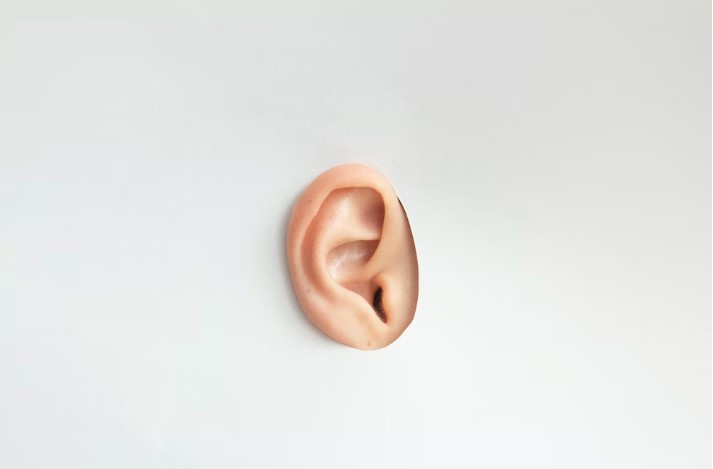Tinnitus is the bane of existence for those suffering from it.
But what exactly is Tinnitus, where is it coming from and what can be done against it?
Let’s take a look…
WHAT IS TINNITUS – AN OVERVIEW
Having tinnitus means you experience ringing or other noises in one or both of your ears. The noise you hear when you have tinnitus isn’t caused by an external sound, and other people usually don’t hear it. Tinnitus is a common problem, it affects up to 20% of people, and it is more common in older adults.
Tinnitus is usually – but not necessarily and always – caused by an underlying condition, such as age-related hearing loss, an ear injury or a problem with the circulatory system. For many people, tinnitus improves with treatment of the underlying cause or with other treatments that reduce or mask the noise, making tinnitus less noticeable. It is also possible that the body is getting used to it (habituation), so it feels like the noise is getting less.
THE SYMPTOMS
Tinnitus is often described as “ringing in the ears”, although several sounds can be heard, including:
– buzzing
– humming
– grinding
– hissing
– whistling
– roaring
– clicking
– like singing or music
Most people who have tinnitus have “subjective tinnitus”, or tinnitus that only they can hear. The noises of tinnitus may vary in pitch from a low roar to a high squeal, and may be heard in one or both ears.
In some cases, the sound can be so loud it interferes with your ability to concentrate or hear external sound. Tinnitus may be present all the time, or it may come and go. You may also notice that your hearing is not as good as it used to be or you’re more sensitive to everyday sounds (hyperacusis).
In rare cases, tinnitus can occur as a rhythmic pulsing or whooshing sound, often in time with your heartbeat. This is called pulsatile tinnitus. If you have pulsatile tinnitus, your doctor may be able to hear your tinnitus when he or she does an examination (objective tinnitus).
WHEN TO SEE A DOCTOR
Some people are not very bothered by tinnitus. For others though, tinnitus disrupts their daily lives, and often in a big way. If your tinnitus bothers you, and/or makes your life seem unbearable, see your doctor.
Definitely make a doctor’s appointment if you:
- should develop tinnitus after an upper respiratory infection, such as a cold, and your tinnitus doesn’t get better within a week
See your doctor immediately if you:
- experience hearing loss or dizziness with the tinnitus
Also make sure to see your doctor if you:
- should experience depression or anxiety as a result of your tinnitus
POSSIBLE CAUSES OF TINNITUS
- Ear infection or ear canal blockage
- Hearing loss
- Medications (Medications known to cause tinnitus include nonsteroidal anti-inflammatory drugs (NSAIDs) and certain antibiotics, cancer drugs, water pills (diuretics), antimalarial drugs and antidepressants.)
- Chronic health conditions
- Various other ear problems
- Injuries or conditions that affect the nerves in your ear or the hearing center in your brain
- Meniere’s disease.
- Eustachian tube dysfunction
- Muscle spasms in the inner ear
- Ear bone changes
- Temporomandibular joint (TMJ) disorders
- Acoustic neuroma or other head and neck tumors
- Blood vessel disorders like high blood pressure
- Other chronic conditions, including diabetes, thyroid problems, migraines, anemia, and autoimmune disorders
RISK FACTORS?
These factors may increase your risk of acquiring tinnitus:
– Loud noise exposure, especially over a longer period of time
– Age – as you age, your are more prone to tinnitus than when you are younger
– Sex – men seem to experience tinnitus more often than women
– Tobacco and alcohol usage
PROBLEMS AND COMPLICATIONS
When you suffer from tinnitus, you may experience one or more of the following:
– Memory problems
– Depression
– Fatigue
– Headaches
– Stress
– Sleep problems
– Trouble concentrating
– Anxiety and irritability
– Problems with work and family life
CAN TINNITUS BE PREVENTED
This question is difficult to answer, as no careful measurements seem to prevent acquiring tinnitus, however, some precautions can help prevent experiencing certain kinds of tinnitus.
– Use hearing protection when in a loud noise environment
– Turn down the volume, even if you love loud music, especially via headphones
– Take care of your cardiovascular health
– Limit the usage of alcohol, nicotine, and even caffeine
CAN TINNITUS BE TREATED?
Unfortunately, currently there seems to be no single treatment for tinnitus that works for everyone, research to find an effective treatment however is continuing.
If an underlying cause of your tinnitus should be the culprit, treating it may help improve or even stop your tinnitus – for example, if the cause is a heavy buildup of earwax.
If a specific cause cannot be found, treatment will focus on helping you manage the condition on a daily basis.
This could be:
– Sound therapy
– Counseling
– Tinnitus retraining therapy
There may be other treatments but as they are as individual as your tinnitus and the cause of it, consulting an experienced doctor may be the right way to ease your everyday life or even erase the nasty sounds entirely.
Coming to a close…
WE NOW FOUND OUT WHAT TINNITUS MAY ALL BE ABOUT, HOWEVER, IF YOU’RE SICK AND TIRED OF THE HIGH-PITCHED NOISE IN YOUR EARS…
You may follow this scientifically designed method for one minute a day…it helped over 43,000 people instantly improve their hearing…
And even escape Tinnitus in less than 21 days!
This incredible therapy was created by the scientists at University of Iowa School of Medicine after discovering what exactly triggers Tinnitus…
So click here to silence the aggravating noise in your ears forever…WITHOUT any expensive therapy…
And without hearing aids, ear flushing, surgery or expensive medications…
It’s a new way to permanently get rid of Tinnitus!
